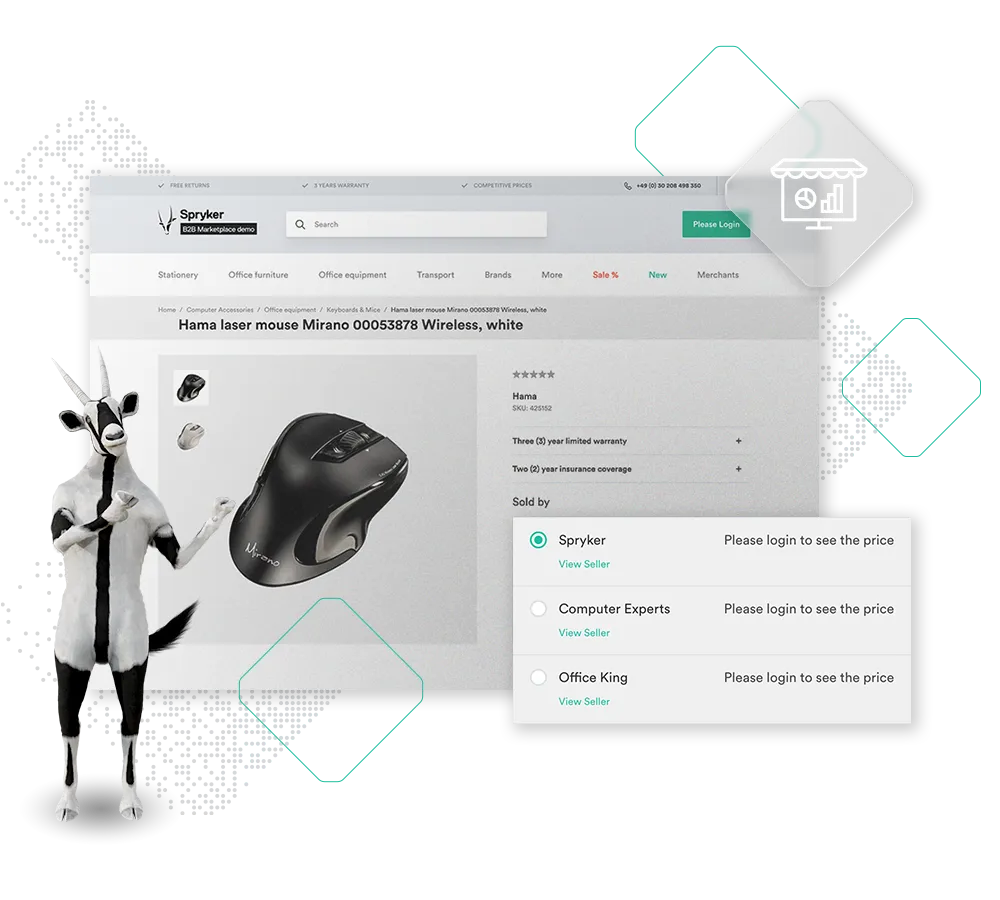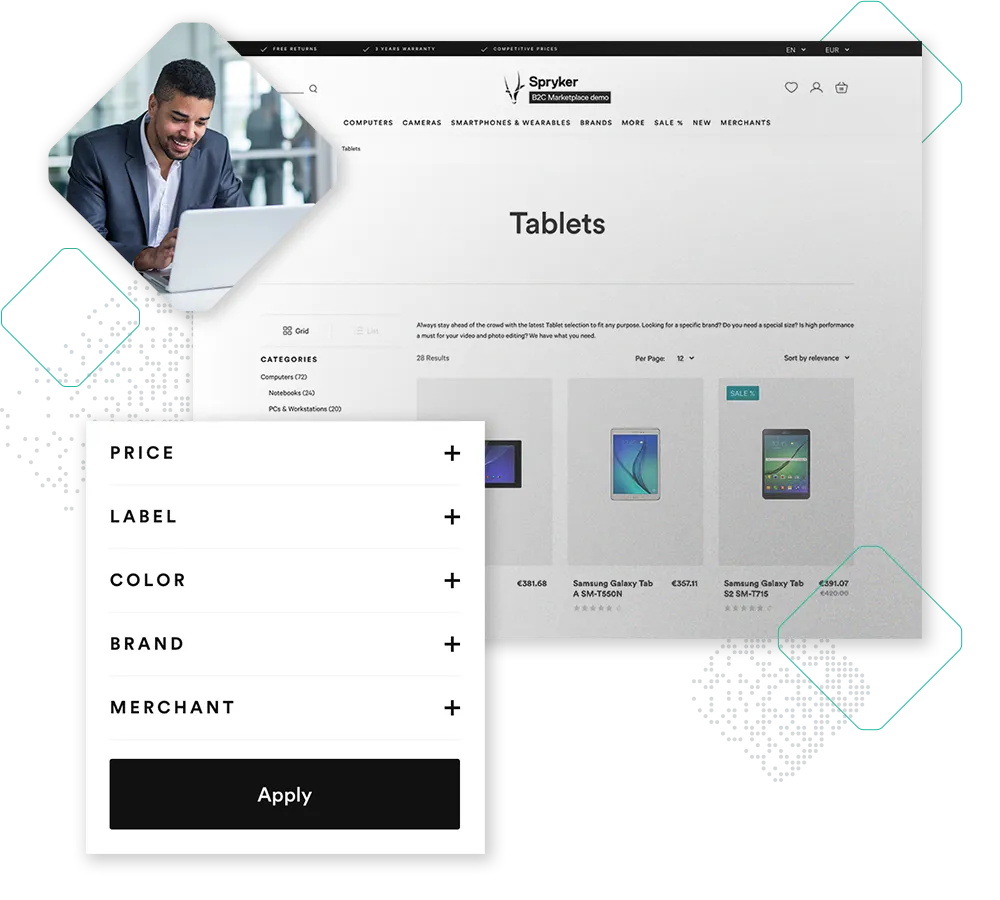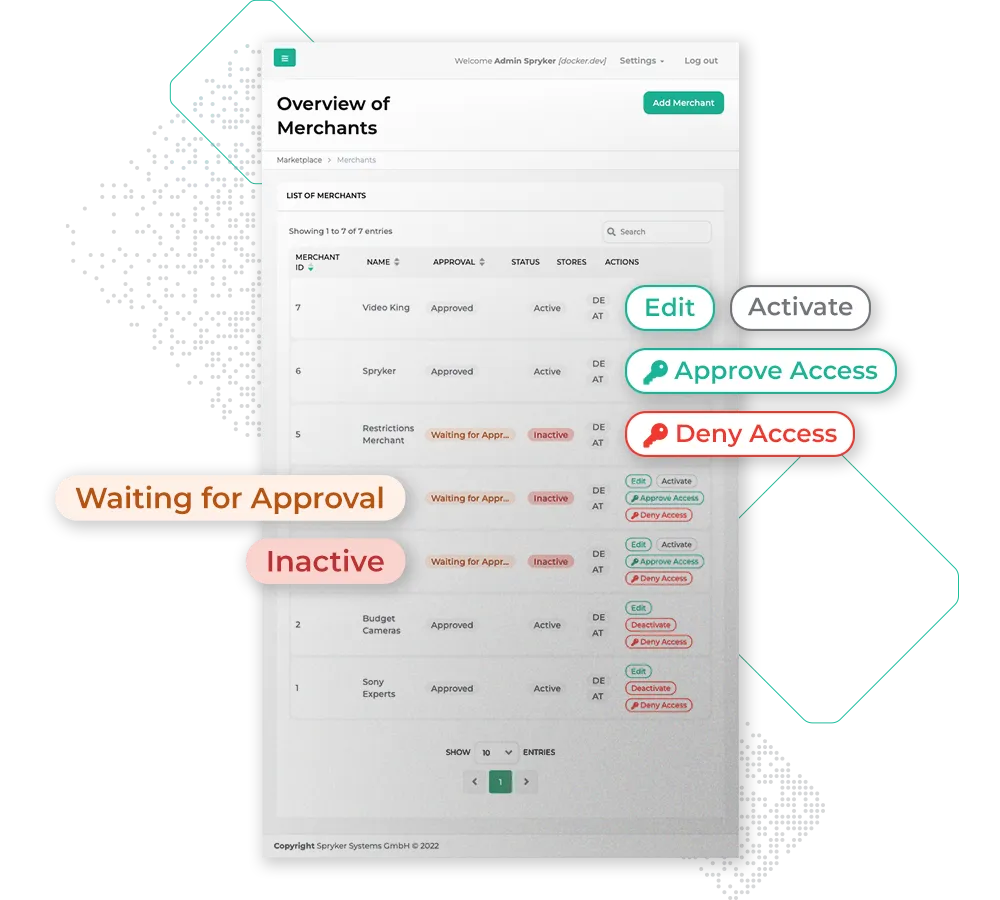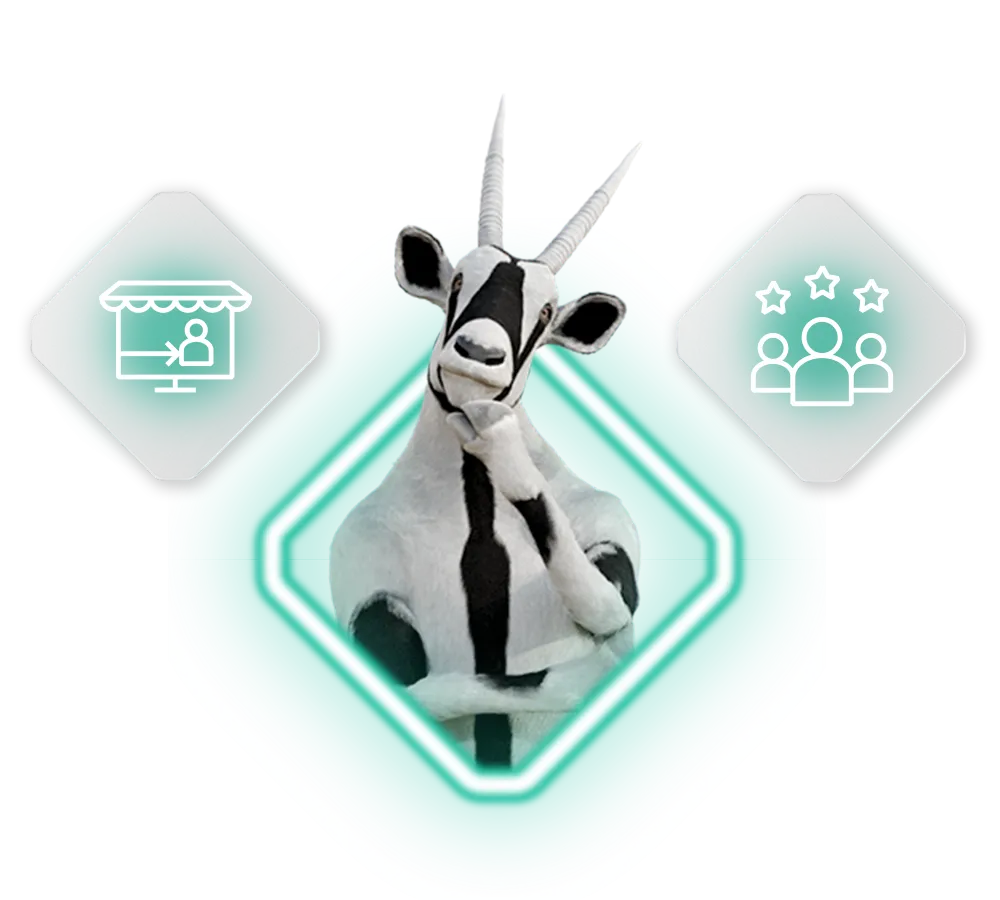Addressing Channel Conflict while Going Direct-to-Consumer
Reap the rewards of D2C while maintaining good relationships with your dealer network by transforming your conflict into a partnership.Status Quo of D2C Commerce
Today’s B2B buyer is more demanding than ever before, expecting a digital ‘Amazon-like’ experience wherever they shop. They want a comprehensive overview of information and offers, delivery, and payment choices, and more frequently, they want the ability to order straight from the source.
Companies, in return for selling D2C, gain direct access and hugely valuable insights into the end customer, that were previously only available to the resellers.
Many B2B companies, therefore, can greatly benefit from instigating a direct-to-consumer sales channel. Ignoring this potential could mean losing end customers who want to go directly to the source.
While the need to go D2C is crystal clear, the solution for doing so without disturbing your well-established business relationships with your dealer network is not so simple.
Your dealer network is a vital piece of the puzzle for your business success, with the infrastructure and processes to help you reach a larger customer base, as well as handling last-mile delivery and return management etc.
In order to keep your dealer network sweet, you shouldn’t position D2C as a way of cutting out the middle man, but rather as an opportunity for partnership and collaborative digitization.
D2C Challenges
- Going D2C creates perceived channel conflict and a sense of competition with the dealer network. They fear D2C is ‘cutting out the middle man’.
- Good relationships with resellers will likely be based on many years of hard work. Most manufacturers in an indirect sales setup consider the reseller rather than the user as their customers. Consequently, businesses don’t want to do anything to jeopardize these corporations.
- While going D2C will open up a new sales channel, businesses still need to rely heavily on their dealer network to provide essential services and to increase reach.
- Businesses must therefore not alienate their dealer network in the process of establishing a D2C route.

Benefits of Going D2C
Businesses, especially in manufacturing, can establish this D2C route by utilizing marketplace technology where your resellers are established as partners on your digital commerce platform. New resellers are also able to sign up, and depending on your business model, certain resellers might get exclusivity in particular areas or specific products. Resellers are then able to manage inventory, pricing, and promotions via the platform, and manage the orders associated with their business.
Furthermore, businesses can utilize the Merchant Selection process to enhance their strategy. While a manual merchant selection allows buyers the freedom to choose their resellers, an automated allocation, for example, based on location, end customer list, algorithm, etc., can help the partners trust that the direct approach is not built to harm them.
Manufacturers need not fear the potential of an ‘Amazon-like marketplace’ lowering end-customer prices by creating competition between resellers. As the 'marketplace owner', manufacturers have the ability to set the price or moderate the price setting on the merchant site. Additionally, by becoming a ‘merchant’ of your own platform, this setup allows you to sell very complex or prestige products directly.
B2B companies are ultimately in control of the brand and able to sell directly to customers while continuing to collaborate with resellers.
Increased Revenue through New Digital Sales Opportunities
- Increase revenue by gaining access to more customers in new locations and adjacent industries.
- Access more distributors and resellers with complementary inventory to increase product offering and spread inventory risk.
- Digitization benefits resellers as the sophisticated marketplace technology will streamline their own processes and sales. A Merchant or Whitelabel store can even allow them to create their own digital storefront.
- Resellers can create an extended aisle, offering products that they wouldn’t normally stock because they can utilize drop-shipping via the manufacturer.
- They can leverage manufacturers’ brand reputation to extend their reach via the manufacturer’s platform, accessing a greater pool of potential customers.
- Increase customer lifetime value by providing the maintenance and warranty services that they need in the long term.


Customer Stickiness through Improved Experience
- Maintain, curate, and enforce a consistent brand experience and quality standards by controlling your entire catalog and product information.
- Customers benefit from having the choice between multiple resellers while experiencing the simplicity of using a single site.
- Customers gain site search across a full catalog and numerous inventory sources.
- Manufacturers can enforce quality standards and capitalize access to extended catalogs from their resellers.
- Increase customer convenience by allowing customers to purchase online and see, test and pick up the product in-store.
Direct Communication & Insights From Customers
- Increase access to customer and product insights, including specific buyer needs, how exactly products are used, and which products are bought together.
- Customers will still be able to benefit from specialized advice from the reseller network.
- Attract more customers by promoting additional service offerings delivered through the resellers on your platform.
- Opportunity to develop traffic, build relationships with customers, and control the company’s messaging.
- Opportunity to develop a world-class customer service experience for customers.


Improved Service of Complex B2B Needs
- By including a dealer network in your commerce platform, you can sell a full “solution” rather than individual parts, by utilizing the adjacent products and connected services sold via resellers as merchants.
- Offset fluctuations in existing channels, such as localized store closures or limited on-site inventory by offering alternative channels.
- Merchandised rebuying, resulting in fewer out-of-stock situations.
With Spryker’s Enterprise Marketplace capability, you can extend your existing platform into a Marketplace or build your scalable marketplace solution from scratch.
The Marketplace capability eliminates the need to source and invest in inventory yourself. Instead, onboard merchants that complement your own product or service offerings.
Spryker Capabilities
- Marketplace Storefront
- Merchant Portal
- Operator Back Office
- Product & Offer Management
- Merchant Profiles
Enabling Services
- Calibration Session
- Customer Journey Analysis
- Operating Model Sparring
- Process Design Workshop
- Organizational Transformation Workshop
Technology Partners
- Channel Pilot
- Tradebyte
Grimme
Delivering a full online experience to their customers and their distribution network by digitizing their distribution channel for machine spare parts.
Supported by Spryker's Marketplace Capabilities, Grimme offers an account for customers to log their machines in an online garage, which allows them to search spare part lists for their machines, as well as different ways of ordering. This 360 online experience means more convenience and satisfaction for both their customers and their international distribution network.
About Spryker
Spryker is the leading global composable commerce platform for enterprises with sophisticated business models to enable growth, innovation, and differentiation. Designed specifically for sophisticated transactional businesses, Spryker’s easy-to-use, headless, API-first model offers a best-of-breed approach that provides businesses the flexibility to adapt, scale, and quickly go to market while facilitating faster time-to-value throughout their digital transformation journey. As a global platform leader for B2B and B2C Enterprise Marketplaces, IoT Commerce, and Unified Commerce, Spryker has empowered 150+ global enterprise customers worldwide and is trusted by brands such as ALDI, Siemens, ZF Friedrichshafen, and Ricoh. Spryker is a privately held technology company headquartered in Berlin and New York backed by world class investors such as TCV, One Peak, Project A, Cherry Ventures, and Maverick Capital. Learn more at spryker.com.